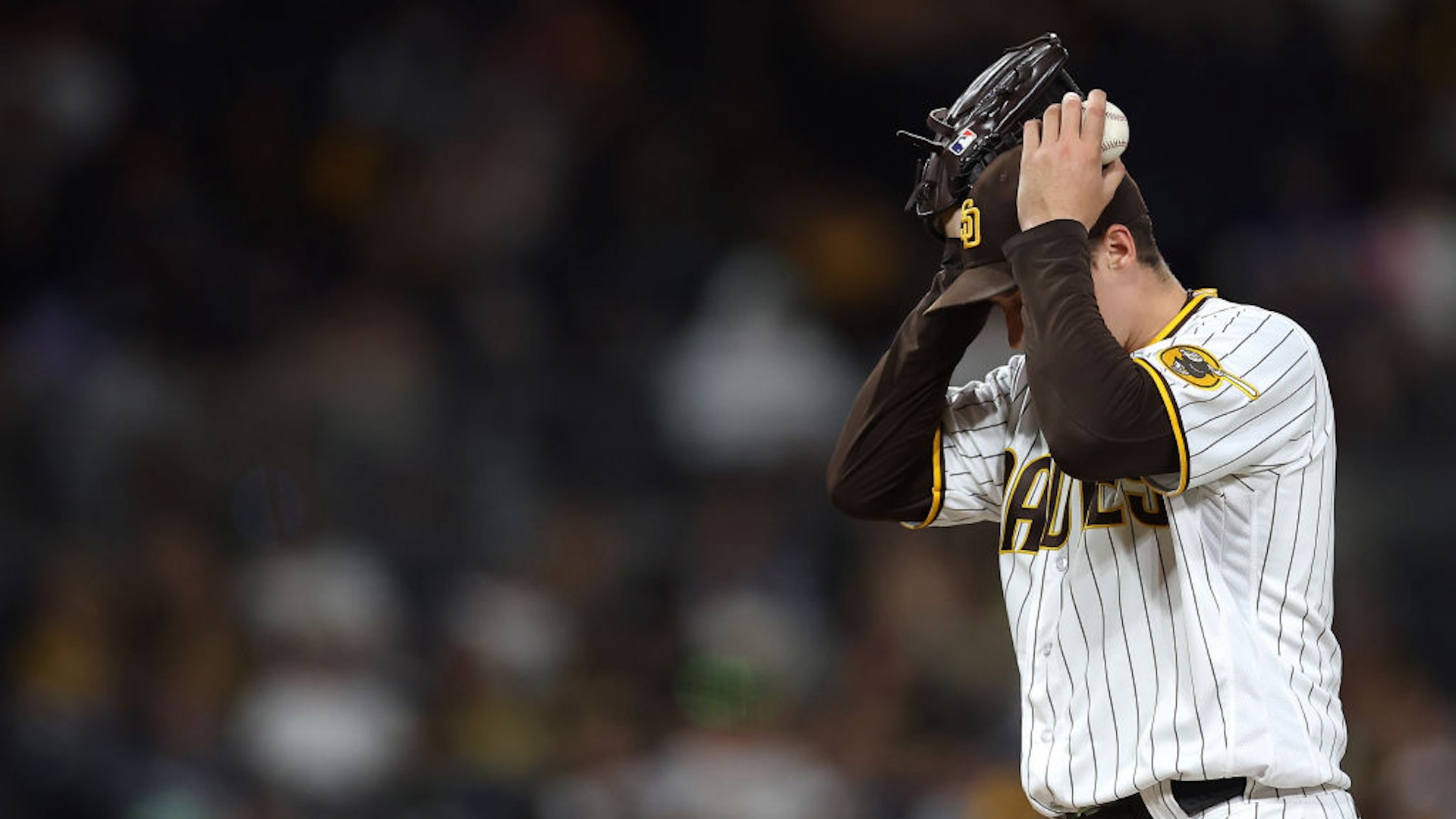A month into spring training, reigning Cy Young Award winner Blake Snell is officially and finally off the free-agent market. As first reported Monday night by Jon Heyman, Snell has signed a two-year, $62 million deal with the Giants that includes an opt-out after the first year.
The numbers "2" and "62" are, historically, too small to appear so close to the words "reigning Cy Young award winner." Snell's deal is a strange one, and lends itself to multiple interpretations. You can look at Snell's career-long inability to pitch more than 180 innings in a season, his shaky control, and some underlying metrics that say he's not quite as good as the overlying numbers, and conclude that this contract, which seems like a huge underpay, is pretty fair. Maybe teams are finally starting to listen to their analytics departments. You could even try to blame this on Shohei Ohtani: His $700 million contract was so large and outlandish that it seems to have given executives around the league freedom to completely ignore it as a market-setter. Demigods don't get their worth compared to mortals.
Then there's the Scott Boras angle. Snell is just the latest Boras client to have spent a good chunk of the offseason waiting for a big offer that never came, only to ultimately settle for a shorter, cheaper deal. Matt Chapman, a 30-year-old Gold Glove winner who has been worth 31.3 bWAR in his seven seasons, waited until March to sign a deal with the Giants that's been billed as a one-year, $18 million deal with potential opt-ins for a second and third year. Cody Bellinger, still just 28 years old and riding into the offseason on the high of a comeback season in which he hit 26 homers and slashed .307/.356/.525, signed a three-year, $80 million with the Cubs that includes opt-outs after the first and second seasons.
If cornered, Boras would probably argue that he did OK for his clients this offseason, trading longterm security for flexibility. But flexibility isn't money, and MLB isn't the NBA or NFL. This is supposed to be the league where guys who reach the top of the pile in free agency are rewarded with long, lucrative contracts. Snell reportedly went into the offseason seeking $290 million, and turned down a six-year, $150 million deal from the Yankees. That makes sense, because the whole point of winning the Cy Young Award the season before free agency is to cash in for the rest of your career. Chapman turned down a $20 million qualifying offer from the Blue Jays and ended up on a cheaper prove-it deal with the Giants anyway. These are the kind of deals that guys hire Boras, who has made his reputation on securing long, expensive deals, in order to avoid having to settle for.
Boras's status as the game's preeminent super agent will take the most damage here, but there are broader labor implications to worry about. His idea was clearly to arm his clients with the ability to jump back into free agency next winter, in the hopes that a hotter market will get them the contracts they were looking for this time. But who is he counting on to heat up the stove? The Padres' piggy bank appears to be closed for business; the Yankees and Red Sox have successfully bullied their fanbases into believing that the luxury tax is an actual salary cap; the Mets might be licking their 2023 wounds for years to come. Maybe Boras is counting on the Dodgers deciding that they'd like to just get it over with and have a full 26-man roster of all-stars.
It's hard to look at what happened to Boras's clients and not feel management's squeeze getting a little tighter. The owners have already learned how to use service-time manipulation, arbitration, and pre-arbitration extensions to suppress players' earning potential in the beginning and middle of their careers. The reward for making it through all that, for playing well and reaching free agency carrying awards and a résumé full of sparkling statistics, is supposed to be a multi-year contract that brings with it the money and security that should have been available all along. Snell making it to that finish line and only getting two years and $62 million for his trouble feels like owners getting some fresh ideas. Snell already let them take a bite out of him once when he signed a pre-arbitration extension for five years and $50 million in 2019, and now they've claimed another chunk.
Say what you want about Boras's arrogance, or Snell's five-inning starts and control issues, but the fact is that a two-time Cy Young Award winner made it to free agency and got treated like a guy who has something to prove. That's bad news for the league's labor force, and they seem to know it. Shortly after Snell's contract was revealed, ESPN's Jeff Passan reported that dozens of MLBPA player reps held a three-hour call with executive director Tony Clark and urged him to replace the union's chief labor negotiator, Bruce Meyer. According to Passan, the call was motivated by players feeling disillusioned by the lack of free-agent spending this winter, as well as the Giants exploiting a loophole to screw J.D. Davis out of his contract.
Snell is a genuinely divisive player, and his odd profile makes it relatively easy to explain away his struggles to secure a big payday. But that is almost beside the point, because owners aren't the type to let a precedent pass them by. If they can turn this particular two-time Cy Young winner into a guy who can't even sniff a $200 million deal, they'll try to do the same thing to the next one.






